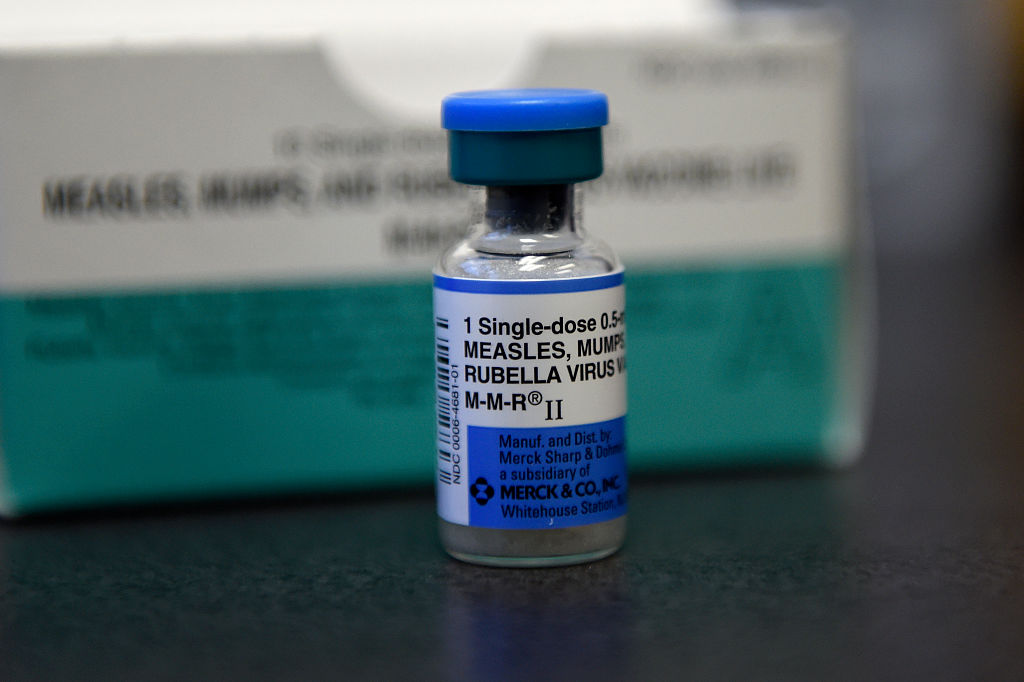
Measles Outbreak Spurs Vaccination Surge in Anti-Vaxxer Hotspot

Get the world’s most fascinating discoveries delivered straight to your inbox.
You are now subscribed
Your newsletter sign-up was successful
Want to add more newsletters?

Delivered Daily
Daily Newsletter
Sign up for the latest discoveries, groundbreaking research and fascinating breakthroughs that impact you and the wider world direct to your inbox.

Once a week
Life's Little Mysteries
Feed your curiosity with an exclusive mystery every week, solved with science and delivered direct to your inbox before it's seen anywhere else.

Once a week
How It Works
Sign up to our free science & technology newsletter for your weekly fix of fascinating articles, quick quizzes, amazing images, and more

Delivered daily
Space.com Newsletter
Breaking space news, the latest updates on rocket launches, skywatching events and more!

Once a month
Watch This Space
Sign up to our monthly entertainment newsletter to keep up with all our coverage of the latest sci-fi and space movies, tv shows, games and books.

Once a week
Night Sky This Week
Discover this week's must-see night sky events, moon phases, and stunning astrophotos. Sign up for our skywatching newsletter and explore the universe with us!
Join the club
Get full access to premium articles, exclusive features and a growing list of member rewards.
Weeks after a hotspot for anti-vaxxers turned into a hotspot for measles infections, vaccination rates have surged in the area, according to news reports.
Last month, following 50 confirmed cases and 11 suspected cases of the measles, Clark County, Washington, declared a public health emergency. Now, residents of the area are scrambling for vaccinations, according to Kaiser Health News.
Compared with January of last year, measles vaccinations in Clark County are up 500 percent, from 530 doses to 3,150 doses. Statewide, the number of measles vaccinations increased by about 30 percent, from 12,140 doses last January to 15,780 this January, Kaiser Health News reported. [27 Devastating Infectious Diseases]
The measles virus is extremely contagious but is also considered "extremely rare," because it's easily preventable with vaccines. But an increase in anti-vaccination movements across the country and even in other parts of the world has left children unprotected and vulnerable to the infection.
The outbreak in Washington state is one of three current measles outbreaks in the U.S. There are also outbreaks in New York City and New York state.
The MMR vaccine protects against three different viruses: measles, mumps and rubella. (There's also a different form of the vaccine, called the MMRV vaccine, that protects against those three diseases plus varicella, which is the virus that causes chickenpox.)
Children should be given two doses of the MMR vaccine. The first should be administered when the child is from 12 to 15 months of age and the second when the child is from 4 to 6 years of age, according to the Centers for Disease Control and Prevention. If a child receives one dose of the vaccine, he or she is protected from the infection 93 percent of the time. With two doses, a child is protected 97 percent of the time, according to the CDC. Adults who haven't been vaccinated should get at least one dose of the MMR vaccine, according to the CDC.
Get the world’s most fascinating discoveries delivered straight to your inbox.
Once the vaccine is administered, it takes about 72 hours to confer protection.
- Tiny & Nasty: Images of Things That Make Us Sick
- 6 Superbugs to Watch Out For
- 10 Deadly Diseases That Hopped Across Species
Originally published on Live Science.

Yasemin is a staff writer at Live Science, covering health, neuroscience and biology. Her work has appeared in Scientific American, Science and the San Jose Mercury News. She has a bachelor's degree in biomedical engineering from the University of Connecticut and a graduate certificate in science communication from the University of California, Santa Cruz.
 Live Science Plus
Live Science Plus










